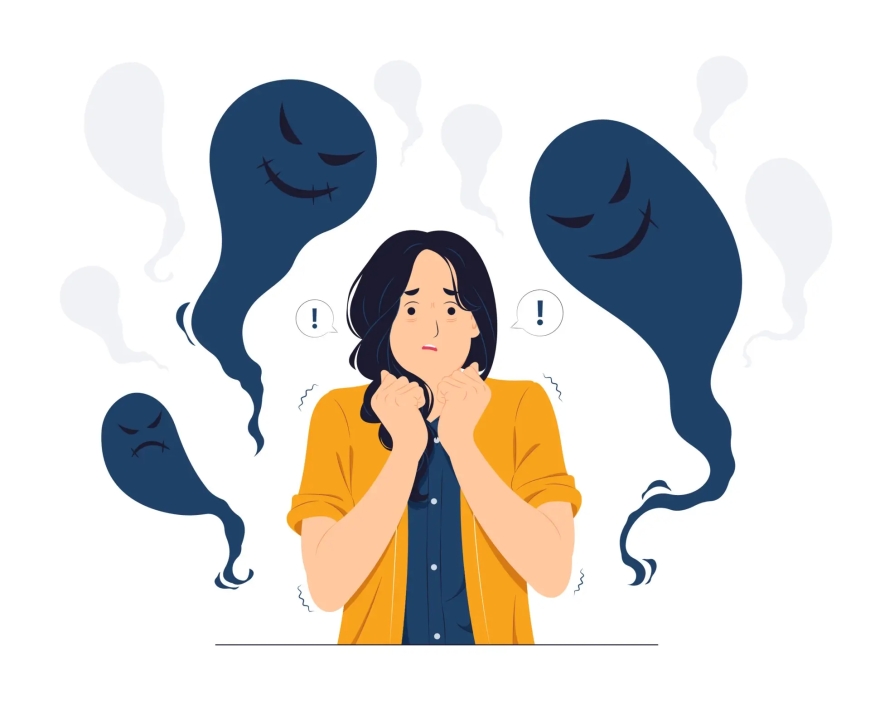Types of Phobias and How a Psychologist Treats Them

If you’ve ever felt an overwhelming fear that seemed irrational—but impossible to shake—you’re not alone.
Whether it's the sight of a spider, boarding a plane, or speaking in front of a crowd, phobias can interfere with daily life in ways that outsiders often don’t understand.
In this post, we’ll explore the most common types of phobias and explain how a phobia treatment psychologist can help you overcome them. From proven therapy techniques to mindset shifts, this guide is designed to give you clarity and encouragement—no shame, no judgment.
Quick Overview: At a Glance
-
Phobias are intense, persistent fears of specific objects, activities, or situations.
-
Common categories include specific phobias, social phobia, and agoraphobia.
-
A phobia treatment psychologist uses evidence-based approaches like CBT (Cognitive Behavioural Therapy) and exposure therapy to help clients face and manage fears.
-
Treatment is tailored and gradual—you’re always in control of the pace.
Want to dive deeper into how phobias work—and how to take your life back from fear? Keep reading.
The Main Types of Phobias
1. Specific Phobias
These are the most well-known and commonly recognised phobias. They involve intense fear of a particular object or situation.
Examples include:
-
Arachnophobia – fear of spiders
-
Acrophobia – fear of heights
-
Claustrophobia – fear of confined spaces
-
Trypanophobia – fear of needles
Key insight: Even when someone knows their fear is irrational, it doesn’t make the experience any less real—or overwhelming.
2. Social Phobia (Social Anxiety Disorder)
This isn’t just being shy—it’s a crippling fear of social judgment or embarrassment. It can affect:
-
Speaking in public
-
Eating or drinking in front of others
-
Attending social events or making phone calls
This kind of phobia can deeply impact careers, relationships, and confidence.
3. Agoraphobia
Often misunderstood as a fear of open spaces, agoraphobia is actually the fear of being in situations where escape might be difficult or help unavailable if panic sets in. This includes:
-
Public transport
-
Shopping centres
-
Crowded places
Agoraphobia can lead to people avoiding leaving their homes entirely.
How a Psychologist Treats Phobias
A phobia treatment psychologist helps clients safely unpack their fears and retrain their brain’s response using structured, proven methods. Here’s how:
1. Cognitive Behavioural Therapy (CBT)
CBT is the gold standard. It helps you:
-
Identify negative thought patterns related to the phobia
-
Challenge and reframe irrational beliefs
-
Replace fear-based reactions with healthier coping mechanisms
“CBT isn’t about pushing you into your fear—it’s about changing how your brain interprets it.”
2. Exposure Therapy
This technique involves gradual, controlled exposure to the feared object or situation. For example:
-
Looking at photos of spiders
-
Then watching a video
-
Eventually being in the same room as one—if you’re ready
It’s always collaborative. You move at your pace with full support.
3. Relaxation & Mindfulness Techniques
These are used to manage the physical symptoms of fear, such as:
-
Breathing exercises
-
Progressive muscle relaxation
-
Guided visualisation
These tools help you stay calm and grounded during exposure.
4. Psychoeducation
Knowledge is power. A psychologist will:
-
Help you understand the science of fear
-
Explain how phobias form and why they persist
-
Teach you how your nervous system reacts—and how to calm it
Pro Tip Box
Facing a phobia isn’t about “being brave.” It’s about being supported. You don’t have to push through panic attacks alone—a psychologist walks with you, not ahead of you.
Quick Guide: Breaking Free from Fear
Let’s say you’re terrified of flying. You haven’t stepped on a plane in years, even though you’ve missed important family events and career opportunities. You want to travel again, but the fear feels bigger than you.
Common Challenges:
-
Do you panic just thinking about boarding a plane?
-
Avoid planning trips because the anxiety starts months ahead?
-
Feel embarrassed to admit your fear to others?
How a Psychologist Can Help:
1. Step-by-step exposure: You’ll start by identifying the least scary part of flying—maybe it’s looking at planes online—then work your way up from there.
2. CBT to reframe thoughts: Replace “I’ll have a panic attack and lose control” with “I can manage discomfort, and I’m in a safe space.”
3. Coping strategies: Learn breathing and grounding tools to use before, during, and after flights.
4. Progress tracking: Celebrate milestones—your first visit to an airport, a short domestic flight—each one is a win.
Why It Works:
Instead of avoiding the fear, you’re learning to manage it with tools, insight, and support. This shifts the fear from feeling unpredictable to something you can handle.
Need help taking the first step? A phobia treatment psychologist is here when you’re ready.
FAQs About Phobia Treatment
Q1: How long does phobia treatment usually take?
It varies based on the type and intensity of the phobia, but many clients see noticeable improvement within 6–12 sessions. Some need longer-term support depending on progress and comfort.
Q2: Do psychologists use medication for phobias?
Psychologists don’t prescribe medication, but they may refer you to a GP or psychiatrist if additional support is needed. However, many phobias are successfully treated with therapy alone.
Q3: What if I’m too scared to even talk about my phobia?
That’s common—and okay. Psychologists are trained to meet you where you’re at, with compassion and zero judgment. You won’t be pushed to go further than you’re ready for.
Q4: Can kids or teens see a phobia treatment psychologist?
Yes! Children and teens often respond well to therapy—especially when it’s adapted to their age, using play, storytelling, or creative tools.
Q5: Will my phobia ever come back?
Occasionally, triggers can resurface—but with the right tools, you’ll be prepared to manage them instead of being ruled by them.
Conclusion: You’re Not Stuck with Fear Forever
Phobias may feel irrational—but they’re incredibly real to the people who live with them. The good news is that with the help of a qualified phobia treatment psychologist, freedom from fear is possible.
Through CBT, exposure therapy, and supportive techniques, psychologists help you regain control—not overnight, but step by step.
You don’t have to stay stuck in avoidance. You can reclaim your choices, your calm, and your confidence—starting with a single conversation.
What's Your Reaction?
 Like
0
Like
0
 Dislike
0
Dislike
0
 Love
0
Love
0
 Funny
0
Funny
0
 Angry
0
Angry
0
 Sad
0
Sad
0
 Wow
0
Wow
0










































